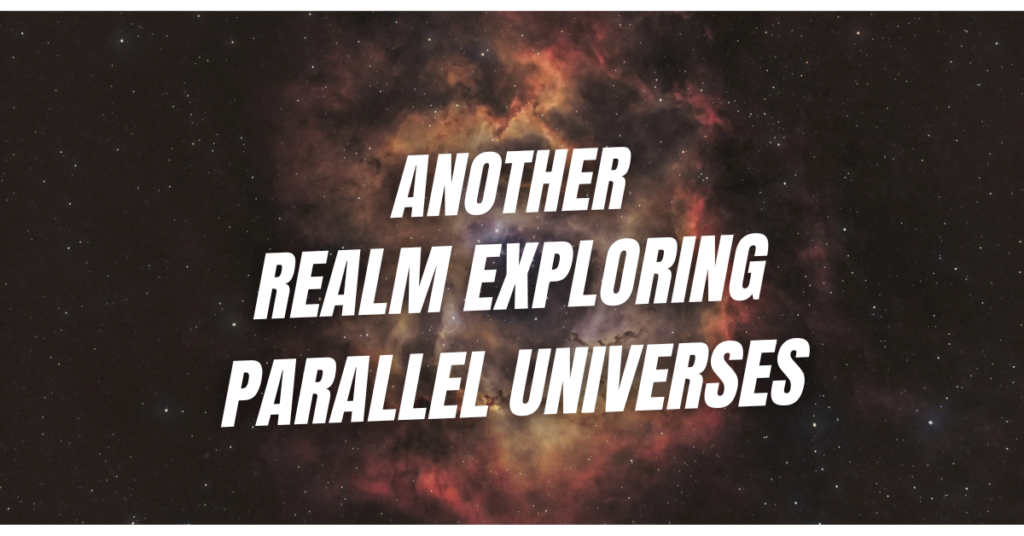Another literature and philosophy, the notion of “any other” often represents the unknown, an alternative, or an opportunity. This idea is not always just a simple word, but a profound element that has shaped various narratives and philosophical discourses throughout history.
Literature Exploring the Another Dimension
In literature, another often serves as a gateway to exploring different realities, opportunities, and perspectives. It allows authors to delve into alternate worlds, create parallel universes, and project the reputation of the quo.
Science fiction and fantasy
The science fiction and fantasy genres have especially embraced the “every other” belief. Authors like Philip K. Dick and J.R.R. Tolkien built difficult worlds that exist alongside our own and invite readers to remember the life of other realities.
The concept of the exchange records in which the Axis powers won World War II creates an engaging narrative in The Man in the High Castle, with the help of Philip K. Dick, that forces the reader to question the nature of truth and the records themselves.
Multiverse theory
The idea of the multiverse, a famous concept in every fiction of technological know-how and actual medical discourse, depends on the concept of the existence of any other universe—or more than one universe—besides our personal one.
This concept has been explored in works including the collection “The Dark Tower” by Stephen King and “His Dark Materials” by Philip Pullman. These stories use the concept of an “other” universe to explore themes of fate, preference, and the nature of life.
Philosophy The Other and Me
In philosophy, the concept of every other is regularly tested in the context of self and other. Philosophers such as Emmanuel Levinas and Martin Buber have explored how the lives of others shape our knowledge of ourselves and our moral obligations.
Emmanuel Levinas and the Ethics of the Other
Emmanuel Levinas, a French logician, focused in particular on the moral consequences of encountering “any other” character. He argued that a personal stumble with some other figure is the muse of ethics. For Levinas, the opposite is not just a general idea, but a concrete reality that requires a response. This encounter disrupts our self-centeredness and forces us to the proverbial unlimited price of the opposite.
Martin Buber’s I-Thou Relationship
Martin Buber, an Austrian seeker of truth, introduced the idea of the I-Thou relationship, which contrasts with the I-It wooing. In the I-Thou courtship, we engage with any other character as a unique, whole being rather than as an object or approach to quitting. This form of dating encourages real connection and getting to know each other and highlights the profound effect of meeting any other character.
Another in cultural and social contexts
Beyond literature and philosophy, the concept of the “other” permeates various cultural and social contexts, shaping our interactions and arena expertise.
Immigration and the concept of the other
In contemporary society, debates about immigration often revolve around the concept of the “other”—the other who comes from a distinctive US or lifestyle. This discourse can have both positive and dire effects depending on how the alternative is perceived and treated.
On the one hand, accepting the other can enrich cultural diversity and promote mutual understanding. On the other hand, fears and prejudices in the opposite direction can lead to xenophobia and social separation.
The digital age a different reality
The virtual age has added yet another dimension to the idea of ”any other”. Virtual truth, social media, and online communities are creating spaces where human beings can exist and engage in ways previously unimaginable. This virtual otherness enables entirely new forms of expression and connection, but it also raises questions about the authenticity and character of human interaction.
A psychological perspective The other self
Psychologically, the idea of ”someone else” can also be internalized. Carl Jung’s idea of the shadow, for example, assumes that there is another side to our personality that we often hide. This shadow self consists of our repressed goals, fears, and instincts. Integrating this different aspect of ourselves can bring about greater self-awareness and personal growth.
Shadow Me
According to Jung, recognition and mastery of the shadow self is critical to non-public improvement. By confronting the parts of ourselves that we often deny or ignore, we are able to gain a more whole and complete sense of self. This process of accepting our different aspects can be challenging, but eventually, it will be relaxing.
Also read: A Comprehensive Guide Hijabhoojup: Style and Cultural Tips for Women
FAQs:
What does the concept of another mean in literature
In literature, “another” often represents alternate realities, parallel universes, and different perspectives. It allows authors to explore what could be, rather than what is and challenges readers to think beyond the confines of their current reality.
How is another explored in science fiction and fantasy
Science fiction and fantasy frequently use the idea of “another” to create intricate worlds and parallel universes. This exploration helps readers consider alternative histories, futures, and the fundamental nature of reality.
What role does another play in philosophy
In philosophy, another is crucial in understanding the self and the other. Philosophers like Emmanuel Levinas and Martin Buber have examined how encounters with others shape our ethical responsibilities and our sense of self.
How does Emmanuel Levinas view another
Emmanuel Levinas sees the encounter with another person as the foundation of ethics. He believes that meeting another person face-to-face disrupts our self-centeredness and compels us to recognize the infinite value of the other.
What is Martin Buber’s I-Thou relationship
Martin Buber’s I-Thou relationship contrasts with the I-It relationship. In an I-Thou relationship, we engage with another person as a unique and whole being, fostering genuine connection and mutual respect.
How does the concept of another relate to immigration
The concept of “another” in immigration debates centers on how we perceive and treat those from different cultures and countries. It can lead to enriched cultural diversity and mutual understanding or, conversely, to xenophobia and social division.
What impact does the digital age have on the concept of another
The digital age introduces new dimensions of “another” through virtual reality, social media, and online communities. These digital spaces offer new forms of expression and interaction but also raise questions about authenticity and the nature of human connection.
What is the shadow self in psychology
The shadow self, a concept introduced by Carl Jung, represents the hidden and repressed parts of our personality. Acknowledging and integrating this shadow self can lead to greater self-awareness and personal growth.
Why is embracing another important in contemporary society
Embracing the concept of “another” is vital for fostering empathy, understanding, and inclusion. It helps us appreciate different perspectives and experiences, which is essential for building a compassionate and inclusive society.
How can the concept of another enrich our lives
By recognizing and valuing the other in all its forms, we expand our horizons, deepen our understanding of ourselves and others, and contribute to a more interconnected and harmonious world.
Conclusion
The idea of ”some other” is a powerful and pervasive theme in literature, philosophy, culture, and psychology. They demand situations from our know-how of facts, ethics, and self and invite us to explore dimensions of change, opinions, and components of our own personality.
Read more: AI18.store The Future of Personalized Online Shopping



